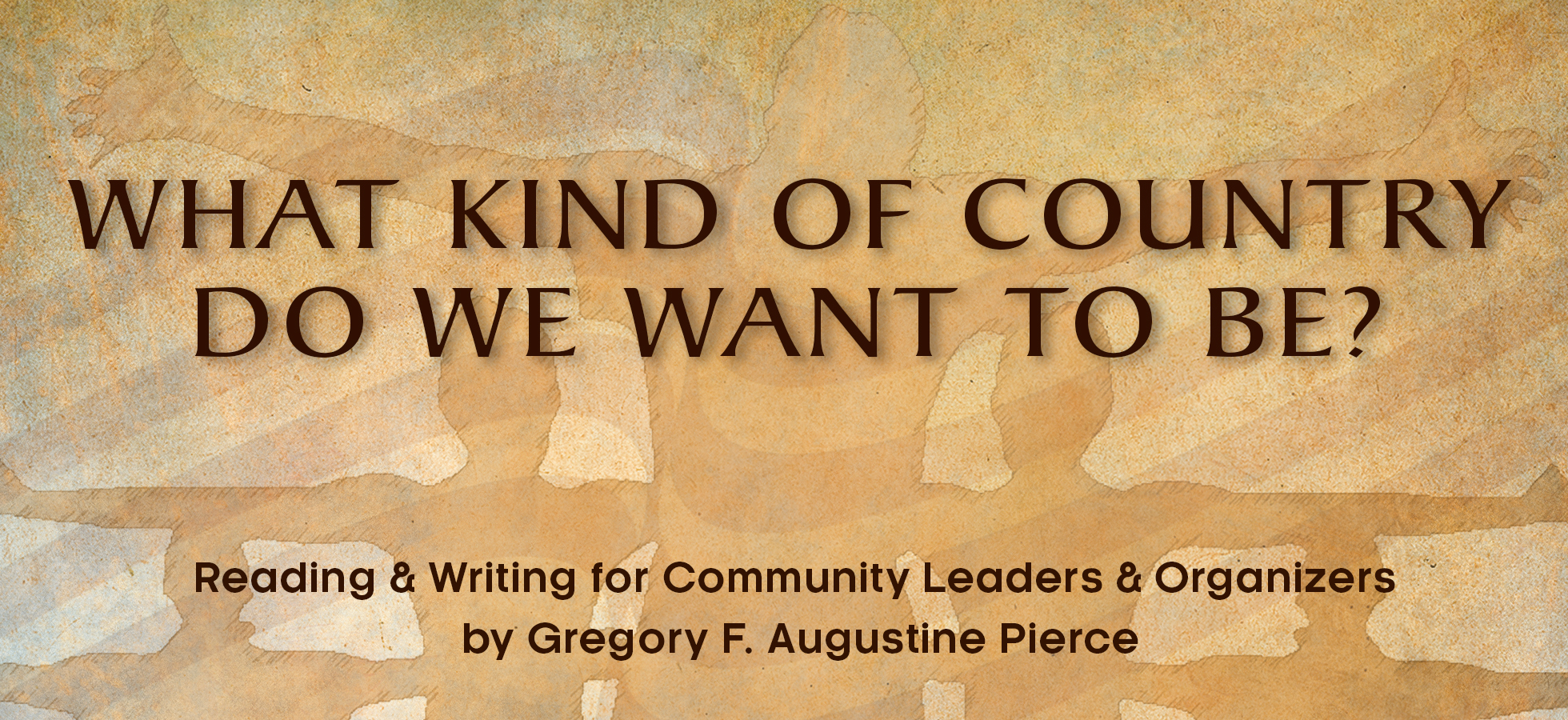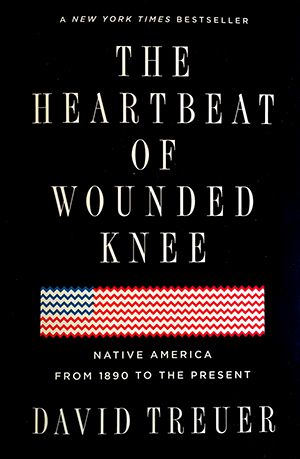- Home
- ACTA Justice
- justice
ACTA Justice
Recent Posts
What Native Americans Can Teach the Nation at This Moment in Our Collective History?
Posted by on

© 2020 Gregory F. Augustine Pierce
This blog is an attempt to convince community leaders and organizers that writing can be another tool in their power toolbox. It offers examples and suggestions on how to write both artfully and effectively. I have been a publisher for over thirty years and a community leader and organizer for almost fifty years, so the combination of these two topics is a natural for me, as in this piece.
The community organizers and leaders of the Illinois affiliates of the Metro Industrial Areas Foundation are reading together The Heartbeat of Wounded Knee: Native America from 1890 to the Present, the insightful, award-winning, bestselling, 500-page book by David Treuer, Ojibwe from the Leech Lake Reservation in norther Minnesota.
Native Americans are being especially hard hit by the coronavirus pandemic and economic collapse and have many things to teach all Americans about the treatment of minorities by law enforcement and government and society in the midst of national protests following the killing of George Floyd. In the epilogue to his book Treuer, who proudly uses the term “Indian” for his people, asks the following questions that resonate directly with today’s headlines.

What kind of country do we want to be? Is this government of ours one that should merely get out of the way so that American can once again be, in Ronald Reagan’s words, a place “in which people can still get rich”? Or is our government meant to be the angel (avenging or otherwise) of our better nature?
It has always bothered me that the very idea of paying
attention to or knowing Indian history is tinged with the soft compassion of
the do-gooder, as a kind of voluntary public service, like volunteering at an
after-school program. But if we treat Indian stories this way, we do more than
relegate Indians themselves to history—as mattering only in relation to
America’s deep and sometimes dark past. We also miss the full measure of the
country itself. If you want to know America—if you want to see it for what it
was and what it is—you need to look at Indian history and at the Indian
present. If you do, if we all do, we will see that all the issues posed at the
found of the country have persisted:
- How do the rights of many relate to the rights
of the few?
- What is or should be the furthest extent of federal
power?
- How has the relationship between the government
and the individual evolved?
- What are the limits of the executive to execute
policy, and to what extent does that matter to us as we go about our daily
lives?
- How do we reconcile the stated ideals of America
as a country given to violent acts against communities and individuals?
- To what degree do we privilege enterprise over
people?
- To what extent does the judiciary shape our understanding of our place as citizens in this country? To what extent should it?What are the limits to the state’s power over the people living within its borders?
To ignore the history of Indians in America is to miss how power itself works.

David Treuer teaches at the University of Southern California. The Heartbeat of Wounded Knee is available from ACTA Publications, www.actapublications.com.
An excerpt from Treuer's book will be featured in Reveille for a New Generation. This collection of essays on leadership and power will be published the day after the presidential election. No matter who wins, it will be very relevant.
Gregory F. Augustine Pierce is the publisher of ACTA Publications in Chicago and the author of many books, including The World as It Should Be and Spirituality at Work. He runs “intensive immersion” workshops on writing for specific kinds of writers, such as the “Writing for Community Leaders and Organizers.” For more information, contact him at gfapierce@actapublications.com or 800-397-2282.
Related Titles
People's Institutions in Decline: Causes, Consequences, Cures by Michael Gecan
A Story for What Ails Us
© 2019 Gregory F. Augustine PierceThis blog is an attempt to convince community leaders and organizers that writing can be another tool in their power toolbox. It offers examples and suggestions on how to write both artfully and effectively. I have been a publisher for over thirty years and a community leader and organizer for almost fifty years, so [...]
 Loading... Please wait...
Loading... Please wait...

